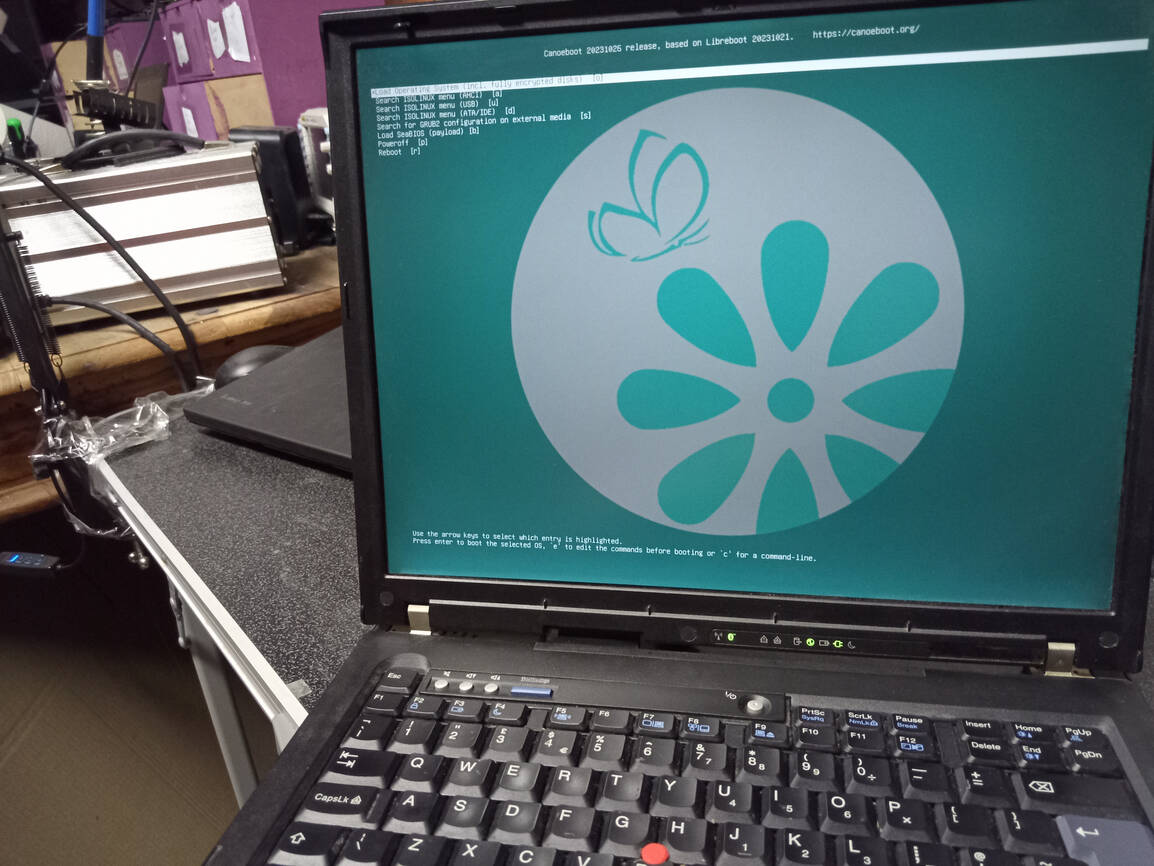The following boards have been added since the Canoeboot 20240612 release:
Sony PlayStation (PCSX Redux Open BIOS) Dell Latitude E4300 (courtesy of Nicholas Chin) Dell OptiPlex 780 MT support Dell OptiPlex 780 USFF support The OptiPlex models are X4X/ICH10 platform, while the E4300 is GM45/ICH9. Both run 100% blob-free, with the Intel ME firmware completely removed, by using modified Intel Flash Descriptors similar to that seen on ThinkPad X200/T400.
E4300 has the same installation procedure as the E6400.



You are confused and mean. You cannot compare 2 different laptops and say that one has worse battery management because of coreboot. You would need to have the same laptop with and without coreboot to do any comparison.
I don’t really get what you are trying to say in the second paragraph but Canoeboot is not a good daily driver because it’s basically a “drug substitute” for GNU dummies. The author of it does not recommend using it. Use Libreboot instead as it does not break your CPU.
I think I can see the confused part; but I don’t get mean.
My comment was an overall anecdotal estimation of my experiences of using windows and Linux on the same laptop. I noticed that the battery life while using Linux was significantly shorter than using windows on the same laptop. My battery life experience w my first core boot laptop seems to be on par w my windows laptop.
Also I get mean a lot; I tend to commit a lot of faux pas and people are usually too angry w me to let me understand what I said/did. I have no idea what I did for the label this time around as well and I hope you’ll tell me.
It sounded like you got annoyed that I was guessing and it sounded like you tried to make it clear to me that the guess was not helpful to you with the use of sarcasm. I guess I misunderstood, sorry.
Regarding the actual questions: You asked how does it compare to Coreboot. Canoeboot is actually coreboot, just slightly modified to work with Free Software Foundation’s rules but these rules are kind of absurd. See [1]. Libreboot is also modified Coreboot but one that’s actually good. The difference between them is that Libreboot should be a bit easier to install and that they support different hardware.
In terms of battery life the same laptop with or without Coreboot should perform the same. Coreboot really only handles the booting. Battery life should depend on the “EC firmware”, which is like a second chip on your motherboard that handles stuff like blinking LEDs or checking if your lid is opened or closed. It also depends on the OS itself so Linux vs Windows will make a difference. Canoeboot is an exception because it does not include “microcode updates” for ideological reasons. Microcode is code that runs on a “CPU inside of your CPU”. Not updating it will A) make your CPU buggy and vulnerable to attacks like Spectre [2] and B) maybe even have worse battery life because Microcode can control the voltage your CPU runs at. More voltage -> more power (P ~ V^2)
[1] https://libreboot.org/news/policy.html
[2] https://en.wikipedia.org/wiki/Spectre_(security_vulnerability)
i’m aware, but thank you for the education nonetheless; lemmy has been teaching me that my knowledge has ossified over the last 25ish years since i became active in the foss world and i like seeing informative takes like these whether or not they’re needed.